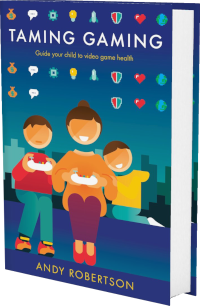 Android
Android iOS
iOS Mac
Mac Switch
Switch Wii
Wii Wii U
Wii U PC
PC PS4
PS4 PS5
PS5 Xbox One
Xbox One Xbox X|S
Xbox X|SWe've documented 22 accessibility features for A Case of Distrust, including Guaranteed Progress, Low Pressure, No Quick Reactions, No Button Combos and No Repeated Pressing. Its accessibility is strongest in Visual and Controls but it also has features in Getting Started, Reading and Navigation to reduce unintended barriers.
This report is created with input from accessibility experts and the player community to help people find games that have the accessibility features they require. Once you have found potential games on the database, there are excellent specialist accessibility sites that offer in-depth reviews to guide your purchasing decisions.
Our accessibility examiner, Angela Hickman Newnham, first checked A Case of Distrust accessibility 2 years ago.
 Accessibility Notes
Accessibility Notes
There is a lot of reading for this game, but it is broken down into smaller chunks and may be manageable at a lower reading level.
The notebook keeps excellent track of the clues you have learned, and clicking on any note will give you a reminder of the relevant information about it, which can help with reducing the cognitive load significantly.
 Game Details
Game Details
Release Date: 08/02/2018
Out Now: PC, Switch and iOS
Players: 1
Genres: Communication, Point-and-Click (Narrative and Puzzle)
Accessibility: 22 features
Components: 2D Side-On and Hand-Made
Developer: The Wandering Ben (@TheWanderingBen)
Costs: Purchase cost
 Controls
Controls
We've documented 6 accessibility features for Controls in A Case of Distrust which deal with how you control the game, different options for alternative inputs and whether you can remap these settings to suit your needs.
Mouse And Keyboard
Can play with the following:
Mouse Alone: Can play with just the mouse/mouse-button/mouse wheel.
Touchscreen
Can play with the following. Additional gestures may be required for games played with a screenreader like VoiceOver.
One Tap Targeted: Can play with touchscreen, tap in specific locations.
Button Combinations
Specific button operation required to play
Holding Down Buttons Optional: Holding down buttons for prolonged periods (a second or more) is not required or can be switched to toggling the action on and off. This is in addition to the movement stick/button which is not considered a hold for this purpose.
Rapid Repeated Pressing Optional: Quick, repeated button pressing (more than 2 times a second) is not required, can be skipped or switched to holding a button to trigger a repeated action.
No Simultaneous Buttons: Only one button or key required at a time, in addition to direction stick(s).
Controller Vibration
Vibration Optional: Controller vibration not used in the game or you can disable it.
Similar Games With More Accessibility Features for Controls
If you want to play A Case of Distrust, but it doesn't offer the Controls accessibility features you require, these similar games extend the Controls accessibility:
- Stories of Blossom (14 Controls Features)
- The Wreck (13 Controls Features)
- Phoenix Wright Ace Attorney (10 Controls Features)
- The Magister (7 Controls Features)
 Difficulty
Difficulty
We haven’t documented any accessibility features for Difficulty in A Case of Distrust which deal with how you can adjust the challenge of play, and whether this is locked once chosen or can be adjusted as you play.
 Getting Started
Getting Started
We've documented 5 accessibility features for Getting Started in A Case of Distrust which deal with what support is offered to get started with the game. This includes customising the experience when you first open the game via any onboarding processes it provides as well as tutorials and other assistance when you first start playing.
Assistance Getting Starting
These features aid your play of the game in terms of cognitive load on learning controls, dealing with pressure and coping with the environment and challenges.
Reaction-Time Not Critical: Individual game actions don’t need quick reactions, or there are settings to lower the requirement for quick reactions. This means you don't need to quickly press a button in response to an on-screen prompt, target a fast-moving target or skillfully complete a scenario against the clock.
Low Pressure: Game tasks aren't time-limited or there's a low-pressure mode. This avoids the pressure of being put on the clock for overarching missions, or failing tasks because you didn't reach a destination in time.
No Jump Scares: No sudden loud noises or popping-up scary visuals that unexpectedly appear without warning, or the option to disable them.
Assistance For Progressing
These features aid your progress through the game offering different ways of maintaining your progression.
Guaranteed Progress With God Mode: There is no fail state for any game level, where you lose progress or have to start again. Or there are options to make failing impossible: infinite health or lives, unlimited time. Sometimes called God Mode or Unfailable.
Save Progress Anytime: The game automatically saves progress or you can save any time. This doesn’t mean you never lose progress, but it does mean you can stop whenever you want (without having to get to a save point) without losing progress.
Similar Games With More Accessibility Features for Getting Started
If you want to play A Case of Distrust, but it doesn't offer the Getting Started accessibility features you require, these similar games extend the Getting Started accessibility:
- Stories of Blossom (13 Getting Started Features)
- Tangle Tower (10 Getting Started Features)
- Videoverse (7 Getting Started Features)
- The Wreck (6 Getting Started Features)
 Reading
Reading
We've documented 3 accessibility features for Reading in A Case of Distrust which deal with how much reading or listening comprehension is required, how well the game provides visual and audible access to the text and whether subtitles and captions are a good fit for purpose.
Reading Level
How much reading is required to play the game's main path or story and how complex the language is. The presence of voiced characters doesn't reduce this requirement, as it's recorded as a separate datapoint.
Extensive Complex Reading: Extensive reading required. The quantity and complexity of reading is suitable for someone who loves long books and enjoys extended dialogue or narrative descriptions.
Text Visibility
High Contrast Text: Text colour contrasts to the background or can be adjusted to be. The text in menus, instructions and other information is presented in high contrast with a solid background.
Subtitles
All Speech Subtitled (Or No Speech In Game): All spoken content has subtitles, or there is no speech in the game. This means there is no requirement to hear spoken dialogue or narrative to play the game.
Similar Games With More Accessibility Features for Reading
If you want to play A Case of Distrust, but it doesn't offer the Reading accessibility features you require, these similar games extend the Reading accessibility:
- Stories of Blossom (7 Reading Features)
- Tangle Tower (6 Reading Features)
- Coffee Talk (6 Reading Features)
- Return of the Obra Dinn (6 Reading Features)
 Navigation
Navigation
We've documented 1 accessibility feature for Navigation in A Case of Distrust which deals with how the game provides guidance and assistance to navigate its worlds. These are only for games that have traversal and exploration in 2D and 3D spaces.
Clarity
Clear Mission Objectives: The game provides clear, structured missions with directional guidance and advice on which can be attempted next. This also indicates (ideally on maps where they are provided) which missions can't be attempted because you do not have the appropriate items yet.
Similar Games With More Accessibility Features for Navigation
If you want to play A Case of Distrust, but it doesn't offer the Navigation accessibility features you require, these similar games extend the Navigation accessibility:
- Stories of Blossom (7 Navigation Features)
- The Magister (6 Navigation Features)
- Where the Water Tastes Like Wine (4 Navigation Features)
- Videoverse (3 Navigation Features)
 Visual
Visual
We've documented 7 accessibility features for Visual in A Case of Distrust which deal with how you can adjust the visuals to suit your needs, and offer additional information if you can't hear the game.
Contrast
High Contrast: There is high contrast between elements that need to be distinguished from each other, such as characters, interactive objects and game environment, either by default or a high contrast mode. This is different to a slider that increases contrast or brightness between light and dark.
Interactive Elements
Outline Interactive Elements: Characters, platforms and enemies can be outlined or highlighted for visibility. This can be with a large border around the character or a special visual mode that adjust the colour to make characters more visible.
Visual Distractions
No Flashes: No flashing strobe effects or you can disable them. This includes the absence of flashing from dramatic visual effects, explosions or weather effects like lightning.
No Screen Shake: No screen shake effect or it is included but it can be disabled. This includes the absence of screen shake for dramatic effect as well as to indicate hits on a target.
No Busy Backgrounds: No distracting backgrounds or you can make them static or blank. This includes the absence of other movement elements in the background that might distract or confuse the action. Where foreground contrast is high, this includes games with some movement in the background that doesn't make it overly difficult to distinguish what is happening.
Motion Sickness Friendly
Motion Sickness Friendly: Doesn't have 3D movement elements that may trigger motion sickness, like motion blur, depth of field and field-of-vision. Or includes the ability to disable motion blur, depth of field and field-of-vision effects.
Colour Options
Colour Blind Friendly: Game doesn’t rely on colour or can switch to colour blind friendly mode with double coding or similar way to avoid colour dependance.
Similar Games With More Accessibility Features for Visual
If you want to play A Case of Distrust, but it doesn't offer the Visual accessibility features you require, this similar game extends the Visual accessibility:
- Stories of Blossom (10 Visual Features)
 Audio
Audio
We haven’t documented any accessibility features for Audio in A Case of Distrust which deal with how you can adjust the audio of the game and whether audio cues compensate for aspects of the game that are hard to see. The following games are similar to A Case of Distrust, and offer accessibility features for Audio:
- Videoverse (3 Audio Features)
- The Wreck (3 Audio Features)
- The Last Door (2 Audio Features)
- Stories of Blossom (2 Audio Features)
System Accessibility Settings
In addition to the accessibility features provided in the game, you can also use system-wide accessibility settings:
Nintendo Switch
Nintendo Switch has some built-in features, including a lockable zoom, that can be used on all games.
PC
Windows has extensive accessibility features. Some, like colour correction, work with games. Lots of accessibility software can be used with PC games, from voice recognition to input device emulators.
iOS
iOS has a very extensive suite of accessibility settings including ways to navigate with voice and comprehensive screen reading, though most of the features don't work with games.
Read more about system accessibility settings.
Accessibility Report supported by VSC Rating Board, PlayabilityInitiative and accessibility contributors Angela Hickman Newnham












